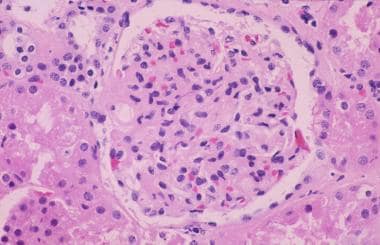Fatigue and CKD: “Why am I so tired all the time?”
Being tired occasionally is normal for everyone. Constant tiredness, lack of energy and feeling weak every day or most days is called fatigue.
Fatigue and Chronic Kidney Disease go hand in hand. It’s fair to say that people often report unusual tiredness as one of their first symptoms of CKD. There are, of course, many other causes of fatigue.
CKD is often diagnosed at stage 3 (an eGFR of 30-59 ml/min) when symptoms begin to appear. Swollen ankles, lack of energy and feeling weak and tired are common.
As kidney function deteriorates, levels of fatigue can increase. This is due to the toxins which are building up in the body because the kidneys are no longer able to filter them out of the bloodstream.
Also some people with CKD become anaemic, i.e. they do not have enough red blood cells which causes us to feel tired more easily. This is largely at the more advanced stages (CD3B-5)
Itching is a common symptom of CKD, as is Restless Legs Syndrome. Both conditions can cause disturbed sleep. Sufferers often do not get enough good quality sleep at night or need to sleep during the day, which leads to fatigue.
Patients on haemodialysis in particular often feel drained or ‘washed out’ after treatment. It can take several hours for them to recover from this level of fatigue.
It is important to tell your doctor or kidney consultant if you notice any changes in your usual energy levels. There may be a treatable, underlying condition causing your fatigue.
Fatigue affects people differently. Here are some common symptoms of fatigue:
- Poor concentration and memory
- Feeling very tired most or every day
- Feeling unable to carry out daily tasks, e.g. showering or getting dressed
- Feeling low, anxious or sad
- Losing interest in things you usually enjoy.
Fatigue can affect our quality of life. It is not being lazy. It is not just feeling a bit tired. It can be difficult to overcome, particularly if we are suffering with other symptoms of CKD. Kidney disease can affect us physically, socially, emotionally and financially. It’s hardly surprising that most patients suffer from fatigue much of the time.
Can you do anything to improve your energy levels and beat your fatigue?
If you are having problems with sleep, anxiety or depression, a counsellor or psychologist can help. Ask for a referral at your renal unit or GP surgery.
If you are a dialysis patient, you may need more dialysis (longer hours, sorry) to improve your ‘clearance’ of toxins in the body.
Blood tests will determine if you are anaemic. Erythropoeitin (EPO), iron injections and other medication can be prescribed to combat this issue.
There are things you can do to help yourself
The first thing is exercise. It may feel like the last thing you want to do, but a fifteen-minute brisk walk in fresh air can lift your mood and improve your energy levels.
Secondly, improve your sleep pattern. Here are some tips:
- Keep the bedroom cool and dark
- Go to bed and get up at the same time every day
- Avoid caffeine late in the evening
- Wind down before bedtime – read or take a bath
- Avoid screens in the bedroom. No TV or electronic devices. Move your phone out of reach
- If you do need a nap during the day, limit it to just thirty minutes.
Finally, do not feel guilty about your fatigue. It can be difficult for others to understand that you are not ‘just a bit tired’.
You are not lazy. You cannot just snap out of your fatigue. If you have chronic kidney disease, you have a complex condition which, sometimes, can have overwhelming symptoms.
Try to plan your week so you don’t have to do too much in one day.
Rest when you need to.
And finally .. be kind to yourself.

Other resource
Why do I feel tired all the time?
Last Reviewed on 18 July 2024

